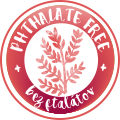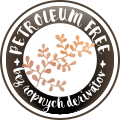SULFATES
SLS (sodium lauryl sulfate) and SLES (sodium laureth ether sulfate)- the most commonly used detergents in the beauty industry
- added to products to create a lather or bubbles and remove dirt and oils from skin and hair
- unfortunately they are little too efficient, as they also remove naturally produced healthy oils from the hair and scalp too
- SLS and SLES are not sensitizers, they are irritants and in some people can temporarily aggravate the skin, causing redness, dryness and itching
Possible harm: skin inflamation & various levels of skin irritation, fading of hair colour and cause hair to become brittle
Sulfates free: Nowadays, many brands go SLS and SLES free, which might mean higher price point, as other surfactants are more costly and lead to pricier formulations in general. Substitution still work on the cleaning front, but the lathering effect which you were used to while using products with SLS and SLES is not replicable.
It is up to you, whether you choose a shampoo with great lathering effects, but damaging your hair, or to use shampoo creating less bubbles, but not removing natural oils from hair.

PARABENS
Methylparaben, Propylparaben, Butylparaben, and Ethylparaben are most commonly used in cosmetics
- preservatives , a group of chemicals that are widely used in cosmetics and personal care products such as deodorants, shower gels and body creams
- anti-bacterial; prevent the growth of bacteria, mold and microbes
Possible harm: There are a number of studies on parabens and their possible links with breast cancer, congenital disorders, fertility issues and chronic diseases.
Paraben free: Bacteria grows in water, so some companies try to find a substitute and they use grape seed extract, lavender, green tea, eucalyptus.

PHTHALATES
Diethyl phthalate (DEP) most frequently used phthalates in cosmetics and personal care
- chemical compounds that are used as plasticizers – ingredients that give plastics their elasticity and change the texture and quality of skincare products . Phthalates are used across a range of cosmetics, from hair sprays to nail polish and perfumes, to make things smoother and more solvent
- considered as estrogen disruptors and the cause of reproductive problems, especially in males
Possible harm: asthma & allergy, disturbing hormonal balance, and causing reproductive problems in both women and men, threaten the development of the fetus, as well as functions of the liver and kidneys
Did you ever notice how plastic sometimes hardens over time? That's because the phthalates have leached out of it. Phthalates are not chemically bound to the plastics they're added to, they're continuously released into the air or food or liquid. They can be realesed into the cosmetic products from the plastic covers, in case the products contains any alcohol.

PETROLEUM
- cheap ingredient, used as moisturizing agent is used by many skincare companies
- can contain carcinogens (cancer-causing chemicals)
- block moisture from escaping the skin, and clog pores
- offer a false sense of hydration, when actually they prevent the action of your skin’s natural fats to act to provide a moisture barrier
- ruins the body's natural moisturizing mechanism
Possible harm: allergic reactions, including rash, skin irritation, and lesions
Petroleum free: Instead of petroleum or mineral oil, use coconut oil, olive oil, jojoba oil, vitamin E, shea butter which are great moisturizers.

SILICONES
Dimethicone mostly used in cosmetic products is extremely heavy and leaves a coating on the skin unless it is carefully removed
- give products a silky, spreadable, luxurious texture
- make skin look and feel smoother, which makes you think the product is "working," even though it's only a temporary, surface effect
- water-resistant, forming a seal over the skin, which allows companies to claim longer-lasting (24- to 48-hour) "hydration" benefits. Silicones inhibit this process by slowing down the production of new cells and keeping dead cells stuck longer
- using cosmetic products with silicones can accumulate layers and it can be hard to clean it off; trap dirt, sweat, bacteria, sebum, dead skin cells
- cheap, this is the main reason why silicones are everywhere...
Possible harm: reduced volume of hair, quicker secretion of sebum, and therefore a need for more frequent washing… and a product that runs out quickly…
What’s the big deal if you use cosmetic with Sulfates, Parabens, Phthalates etc? Why should you worry about using products that contain the listed chemicals?
The skin is a super-absorber of substances both good and bad, and the products you put on your skin end up in your body.
